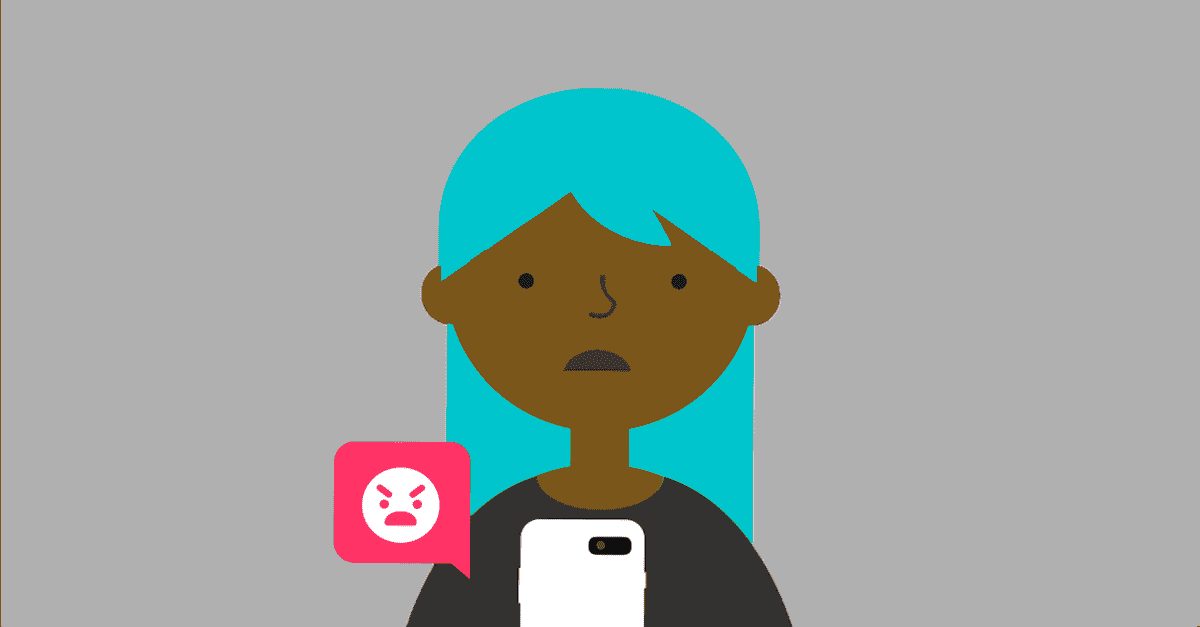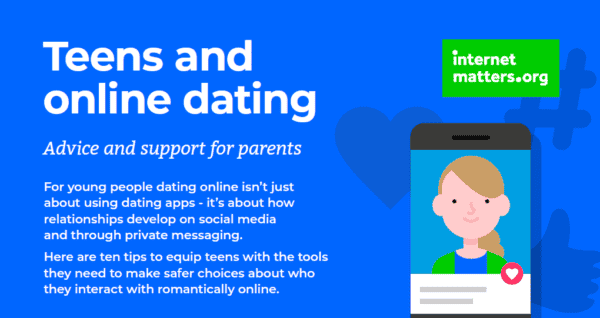The Risks
Connecting with potential love interests online can be fun and exciting for young people but it can also come with potential risks. We explore what these risks are and what you and your teen should look out for to stay safe.
Connecting with potential love interests online can be fun and exciting for young people but it can also come with potential risks. We explore what these risks are and what you and your teen should look out for to stay safe.

For young people dating online isn’t just about using dating apps – it’s about how relationships develop on social media and through private messaging. Although most children today are tech-savvy, they may not be tech safe. It’s important to consider that although young people may have be able to navigate the latest apps with ease, they may not have built the resilience to deal with issues that come from building and managing online relationships.
Children and young people with special educational needs and disabilities (SEND) and those that are vulnerable, may be more trusting and socially naive, therefore more at risk to understand the dangers when forming online relationships.
According to research from LSE: disabled children tend to have more digital skills but encounter more online risk and may lack peer support.
Here are ten tips to equip teens with the tools they need to make safer choices about who they interact with romantically online.

Who your children talk to are most likely other children, but some people may not be who they say they are or may be groomed by sexual predators. They may try to trick a young person into believing that they are trustworthy, that they are a friend or they may even pretend that they are the same age.
According to the NSPCC, more than 200,000 secondary school kids have been groomed online (2019 figure).
Advice: Not everyone they meet online will have the right intentions, so it’s important to discuss the risk surrounding online dating such as online grooming and also what signs to look out for to avoid putting themselves in unsafe situations.
If in the wrong hands, a sext, can perpetuate bullying, emotional abuse, revenge porn, harassment, embarrassment, low self-esteem, even depression.
Advice: Discuss tech dangers – sometimes teens are tempted to send nude photos and unfortunately, there have been cases where these pictures have become public.
Make sure they understand they have the right to say no and that anyone who cares about them should respect that. See our Sexting advice hub to learn more and get support on how to equip your child to make safer choices online.
The more your teen explores the realm of romance online, they may experience unwelcome advances, sexually explicit pictures and general harassment via social media, chat forums and sites, dating apps or messaging services such as WhatsApp and Snapchat.
Advice: If you’re worried about someone your child is in contact with online, it’s important to report these concerns using the appropriate tools on the social media platform they are using. You can also find more information by visiting the CEOP.
It’s also important to note that some social media apps used location services to allows users to see each others locations to find potential matches. This could put young people at rsks if they are planning to meet someone that they have only connected with online. Having a conversation about potential risks that they could face and putting in palce safety rules are essential to keep them safe.
Step UP, Speak UP resource to help young people deal with online sexual harassment
See report from Project deShame to learn more about teens experiences of online sexual harassment.
Keeping certain personal information private such as their location, address and where they attend school or college is important. Doing a search of their name could be a simple way of checking out what information is available about them. Children often share multiple social media handles on these apps, they can give strangers access to more personal information and intimate conversation.
Advice: Using the right privacy settings across all their social accounts and turning off locations services, can help them stay on top of what information is available for everyone to see.
Teens will tend to seek validation online so when it comes to dating, they may be more likely to do or say inappropriate things to gain acceptance with someone they may be in a relationship with.
Advice: To ensure they make safer choices, talk to them about a range of topics they may be exposed to while dating online like trust, sex and intimacy. This will help ensure they stay balanced when they come across things that may be incorrect or lead them to believe something that isn’t true.
If your teen is only seeking relationships online and neglating their offline relationships this may have a negative impact on their wellbeing. For example, a teen with a long-distance boyfriend in another area may decide not to attend social events, like a party because she wants to stay home to chat with her boyfriend online.
Due to the nature of the online world, young people can easily place a stronger emotional connection with online-only relationships at the expense of friends and family that they know in real life.
Advice: You should regularly check in with your teen to ensure they have a healthy balance between spending time online and offline. You could also remind your child of ways to connect with their peers offline – such as sport, dance and drama classes or other social activities.
See more articles and resources to keep children safe online